You probably have a picture in your mind when you hear the word alcoholic: an older man—ragged clothing, penniless, maybe homeless. We all have our prejudices about addicts, drug abusers, and people who drink too much. The truth is, however, that someone who drinks too much could be just about anyone.
Sometimes that person who is headed down the path to alcoholism doesn’t appear at first glance to have a problem. It might be someone who is well off and has a great job. It could be a young woman. It could be a mom or a wife. Alcoholism is not restricted to the stereotype, and more women are drinking now than ever before.
If you suspect at all that your mom or the mother of your children is drinking more than is normal, or if you suspect it in yourself, take note. Know the signs of early drinking problems as well as the effects of alcoholism in women and step in to help, or get help, before it goes too far.
Has Drinking Become A Secret Habit?
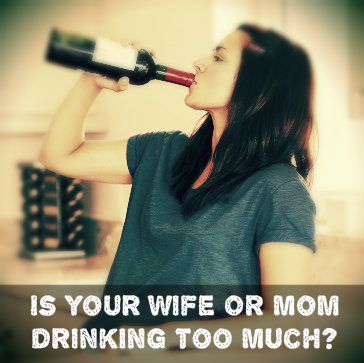 For women who are home all day, with or without the kids, drinking in secret is a real possibility. She can have a glass of wine with lunch—or two or three—sober up when it’s time to pick up the kids, and no one is the wiser. If you are the secret drinker, that fact in itself indicates a problem. Hiding a habit is always an early sign of problem drinking. So how can you tell if your spouse is hiding this habit from you? Look for the leftovers. If wine disappears from the fridge or you find stashed liquor bottles around the house or in the recycling bin, something is amiss.
For women who are home all day, with or without the kids, drinking in secret is a real possibility. She can have a glass of wine with lunch—or two or three—sober up when it’s time to pick up the kids, and no one is the wiser. If you are the secret drinker, that fact in itself indicates a problem. Hiding a habit is always an early sign of problem drinking. So how can you tell if your spouse is hiding this habit from you? Look for the leftovers. If wine disappears from the fridge or you find stashed liquor bottles around the house or in the recycling bin, something is amiss.
Is Drinking Getting In The Way Of Responsibilities?
A classic sign of a drinking problem, or any substance abuse problem, is that it interferes with daily life. If your work-at-home or stay-at-home mom or wife is slacking on her usual responsibilities, something could be up. Maybe the laundry is piling up more than usual, or the house is not as clean as it used to be. Perhaps the kids get picked up late one time too often. If there are valid reasons for these slips, such as new or added responsibilities, that’s one thing; if you can’t see any reasonable explanation and you suspect drinking, you could be right.
Can She Have Just One Drink?
How do evenings look in your home? Does your spouse have one glass of wine with dinner or does she struggle to limit herself? The compulsion to drink more and more is a clear sign of a problem. If she constantly says she will have just the one, but always stretches that to two or more drinks, she is on a dangerous path. When you try to limit your drinking, but can’t do it, you are on the road to problem drinking.
Is She Defensive When You Talk About Drinking?
Someone who is drinking too much, but is in denial about it, is likely to get defensive when you try to have a discussion with her. Bring it up and open the way for a talk. If she acts unreasonably defensive and gets angry if you try to suggest she curb her drinking, there may be a problem. Problem drinkers will naturally have a hard time admitting this fault, but she needs your help. Press the issue and point to the signs that demonstrate a problem. Ignoring it will not make it go away, and eventually someone will get hurt.
If you or someone you love needs help with alcohol or drug addiction, contact us now at 855-763-6488 and let us help you start a life of recovery and freedom!
Read More On How To Know If I’m Enabling The Addict In My Life
Emotion regulation skills are the skills that people rely on to process their emotions and control their reactions to both everyday circumstances and extraordinarily stressful circumstances. Broadly speaking, people who lack fully developed forms of these skills have increased risks for getting involved in drug use and eventually developing significant drug-related problems. In a study published in September 2013 in the journal Drug and Alcohol Dependence, researchers from four U.S. institutions examined the interaction between emotion regulation and drug-related risks on a more detailed level. These researchers identified specific emotion-processing styles that can boost or lower a person’s chances of using and abusing drugs.
Range Of Emotions And Emotion Regulation
 All healthy human beings experience a range of emotions. Some of these emotions, commonly referred to as positive emotions, tend to support a sense of well-being and increase a person’s ability to interact well with others and maintain a fruitful daily routine. Examples of emotions commonly viewed as positive include love, joy, interest, hope, gratitude and certain forms of pride. Other emotions, commonly referred to as negative emotions, tend to destabilize a sense of well-being, decrease the quality of a person’s social interactions and make it more difficult to establish an effective routine. Examples of emotions commonly viewed as negative include hatred, anger, jealousy, sadness, helplessness and hopelessness.
All healthy human beings experience a range of emotions. Some of these emotions, commonly referred to as positive emotions, tend to support a sense of well-being and increase a person’s ability to interact well with others and maintain a fruitful daily routine. Examples of emotions commonly viewed as positive include love, joy, interest, hope, gratitude and certain forms of pride. Other emotions, commonly referred to as negative emotions, tend to destabilize a sense of well-being, decrease the quality of a person’s social interactions and make it more difficult to establish an effective routine. Examples of emotions commonly viewed as negative include hatred, anger, jealousy, sadness, helplessness and hopelessness.
Despite the rudimentary labeling of these various emotional states, healthy individuals typically experience a mixture of “positive” and “negative” emotions, and benefit from both in appropriate settings. Emotion regulation is the process that allows people to do such things as analyze their current emotional states, consciously or unconsciously make decisions to change their emotional states, integrate their emotions and thoughts, and use emotions to guide or modify behavior. However, not all people successfully use the regulation process to deal with their emotions in healthy ways. Instead, when they feel strong emotions (especially negative emotions), they lose the ability to control their reactions and enter a state called emotional dysregulation.
Emotional Dysregulation’s Impact On Mood
As a result of their problems with emotional control, people affected by emotional dysregulation develop a form of mood instability that manifests in two main ways. First, they experience unusual and erratic shifts between emotional states (i.e., mood swings), especially states that don’t normally appear together in a short span of time. Emotionally dysregulated individuals also tend to experience unusually intensified forms of emotion that appear out of context for a given situation.
Emotional Dysregulation’s Impact On Drug Use
In the study published in Drug and Alcohol Dependence, researchers from the University of Southern California, Drexel University, Temple University and Children’s Hospital Los Angeles examined the connection between emotional regulation abilities and drug use risks among teenagers and young adults between the ages of 16 and 25. They performed this examination by interviewing 560 people in this age group with a recent history of abusing prescription drugs such as opioid painkillers and sedative-hypnotic medications. The interviews also contained questions designed to identify the use of illegal/illicit drugs such as cocaine and heroin. The researchers decided to conduct their study because of the lack of available information on the connection between emotional coping styles and drug use patterns in the targeted age group.
Four Styles Of Emotion Regulation And Those Who Are More Likely To Use Drugs
After examining their data, the researchers found that the study participants had four distinct styles of emotion regulation: a suppressing style designed to avoid dealing with strong emotions; a coping style that relies on the intervention of others for its effectiveness; a coping style that relies on self-generated efforts; and a proactive style that seeks to change the situations that produce stress or unpleasant emotional states. They also found that two of these styles—emotional suppression and reliance on others to deal with strong emotions—are clearly associated with increased risks for developing dangerous patterns of prescription or illicit/illegal drug use. By comparison, people with a proactive style of emotion regulation, in particular, have relatively low risks for participating in these drug use patterns.
Hope For Future Treatments To Prevent Drug Abuse
The authors of the study published in Drug and Alcohol Dependence believe they are one of the first research teams to demonstrate that the use of certain emotional coping styles can increase any given individual’s chances of developing significant drug problems. They also believe that their work can form the basis for future research that ultimately provides a real-world improvement in the ability to treat and prevent drug abuse and drug addiction in teenagers and young adults.
Read More About If Inattention And Impulsivity Increases The Risks For Stimulant Abuse
Continued From – In A Relationship With An Addict: Stay Or Leave? Part 1
Addressing Codependency Within Yourself
If, through Al-Anon or CODA, you have identified codependent tendencies, it is time to seek help for that problem specifically. A relationship with an addict is never healthy, but neither is a relationship with a codependent. Codependency is a pattern that mimics addiction. If you hope to have healthy, functional relationships in the future, it is imperative that you begin working through this condition.
Ending a cycle of co-dependency is not easy and professional help may be required, as these patterns are usually deeply ingrained and rooted in childhood experience. Learning new, healthy patterns for relationships is not automatic and needs to be addressed intentionally.
Learning To Recognize The Deception And Manipulation Of Your Addict Partner
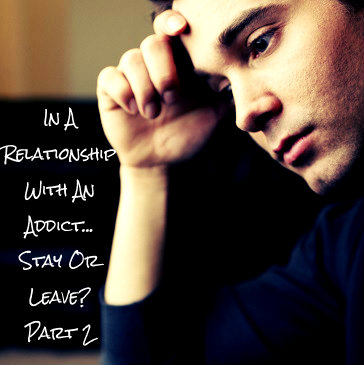 How many times has your addict partner blamed you for his or her problems? Or, when you confronted your partner about the addiction, the focus was shifted to you, claiming that if only you were more this or less that, the addicts wouldn’t drink or use in this way? What about all of the excuses of an addict?
How many times has your addict partner blamed you for his or her problems? Or, when you confronted your partner about the addiction, the focus was shifted to you, claiming that if only you were more this or less that, the addicts wouldn’t drink or use in this way? What about all of the excuses of an addict?
Your partner’s addiction is, in no way, related to you or your perceived failings as a partner. Addicts are masters of deception, blame-shifting, excuse-making, and manipulation. Are you falling for it? Do you believe the addict even when you suspect he or she is lying? Do you fail to acknowledge red flags? Part of codependency is smoothing over issues or matters that may cause a fight but should be addressed. Are you allowing yourself to be manipulated?
Recovery May Not Be The Answer For The Relationship
As the non-addict partner, your focus has been on the addict—their needs, their issues, their failings, their protection, and their need to get into recovery. And sometimes the addict does actually pursue recovery, get sober, and join a 12-step community. It seems like this would be the ideal situation.
Not necessarily. Indeed, recovery is always the answer for the addict. There is never a time when it is better to stay in addiction than to get into recovery. But recovery may not be the “answer” for your relationship. The combination of an addict (them) and a non-addict/potentially co-dependent (you) creates a certain relational pattern that, while perhaps not ideal, is familiar. The addict is accustomed to being the screw-up or the authoritarian, and the non-addict is slotted into the role of caregiver, protector and hero.
Recovery changes that. Suddenly the sober addict is bringing a new dynamic to the relationship—taking ownership of their faults, attempting to set proper boundaries, devoting time to recovery and a 12-step community, and seeking the direction of a higher power. This can leave the non-addict in a quandary, not knowing how to act or respond to the sober partner, and not appreciating the shift in roles. Co-dependents get their fix from being rescuers, enablers and controllers. When they are relieved of that role, conflict often results.
Breaking Up With An Addict
A relationship with an addict can never be anything less than toxic. If you are dating rather than married to an addict, the ease with which you can leave the relationship is greater. In the case of marriage where children and a shared home may be involved, other tactics and attempts at recovery should be employed before declaring the marriage over.
For those who are in a dating relationship, the ties with an addict are somewhat easier to sever. While a breakup is always painful, you won’t have the added challenge of a legal battle. The hassle of splitting up possessions or finding a new place to live should not be a deterrent. Freedom and healing is worth that price.
If you fear that your attempts to leave the relationship will be met with violence or other maliciousness, it is wise to involve law enforcement, obtaining a restraining order if necessary. It is also helpful to have the names and phone numbers of shelters in your area where you could stay anonymously for a period of time if necessary.
Listening To Wisdom Of Others And Making A Healthy Decision For Yourself
While the opinions and advice of others need not dictate your life and the decisions you make regarding your relationship, it is often wise to listen to people around you. If your family and close friends are consistently encouraging you to send your partner packing, you may want to take heed. Think they don’t know him like you do, or that they just can’t see the real her? You may be right, but at some point you may need to ask yourself if you are the one who is not seeing the situation in all of its reality.
Whether you decide to stay or leave, you are seeing that not all problems in your relationship are the addict’s. You are gaining awareness of your own faults and perhaps your unrealistic expectations. Only you can decide if this relationship is right for you, but you are gaining the knowledge and understanding to help you make an informed and healthy decision.
Read More About How To Handle A Loved One With An Addiction
You know your partner battles an addiction and you’ve seen the toll it is taking on your relationship, not to mention your own well-being and sanity. Yet you stay. And the problem continues. How do you recognize an addict’s excuses? Is it possible to have a healthy relationship with an addict? Should you even try? How do you decide when it’s time to call it quits?
Unhealthy Attracts Unhealthy In Relationships
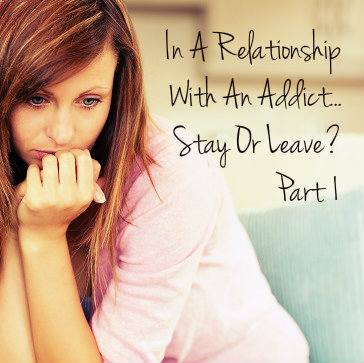 It helps to begin with a little soul searching. What keeps you in a relationship with an addict in the first place? The reality is that people who maintain relationships with addicts are often operating from a place of co-dependency and emotional neediness. Whether or not you stay in the relationship, it is probably time to start looking at some of your own issues.
It helps to begin with a little soul searching. What keeps you in a relationship with an addict in the first place? The reality is that people who maintain relationships with addicts are often operating from a place of co-dependency and emotional neediness. Whether or not you stay in the relationship, it is probably time to start looking at some of your own issues.
It is easy to make the relationship about the other person and his or her addiction and to be constantly focused on catering to the needs of the one who seems to be the “problem.” As a result, the non-addict doesn’t see the need to work on him or herself. In normal relationships, each partner is growing and changing in partnership with the other. In the case of a relationship with an addict, however, this normal growth and progression stagnates—often for both partners.
Examine Your Motives When In A Relationship With An Addict
People in relationships with addicts often avoid trying to honestly discover why they are in the relationship in the first place. No one can tell you it is time to end the relationship, but you might ask yourself why you think you want, or need, to stay.
Questions To Help You Work Through The Feelings Of Continuing Or Ending The Relationship With An Addict
- Are you afraid of being alone?
- Are you afraid you can’t find anyone better than your current partner?
- Do you believe that you can change him/her?
- Do you think you can love him/her out of the addiction and into a clean life?
- Do you optimistically believe that somehow things will just work out, even though there had been no evidence of that?
- Do you tell yourself it’s not that bad?
- Are you afraid of drastic consequences if you leave the addict? Has he or she threatened harm to self, you, or others if you end the relationship?
- Are you avoiding the hassle? Are you too lazy to make the break and deal with the consequences of splitting possessions and potentially having to find another place to live?
- Are you afraid to discuss the problems in your relationship or your desire to leave for fear of starting a fight? Are you afraid of physical abuse?
- Is the addict working to convince you there isn’t a problem, but maybe your gut is telling you differently?
- Has the addict vowed to go to AA, but failed to follow through?
- Do you think the addict can’t make it on his own without you?
- Are you afraid to present an ultimatum?
More “yes” answers than “no” suggest strong co-dependent tendencies.
Work On You And Your Own Issues
Any time spent in a relationship with an addict can be crazy-making. It is time to start working on you. Seeking your own recovery can often help you to better decide whether you should try to keep the relationship going or end it.
Start by attending an Al-Anon meeting in your area. Al-Anon can help you to better understand addictive patterns and tendencies and give you the tools and support for working with them. You will learn about yourself, and why you stay with an addict, and how to set better boundaries if you do stay in the relationship.
Co-Dependents Anonymous (CODA) is another group worth seeking out. Partners of addicts commonly suffer from codependent tendencies. A group like CODA takes the focus off of healing the addict and puts it onto healing and discovering you.
Whether or not you choose to stay with the addict, and whether or not he or she will get help, you need help and support in dealing with the addiction, and eventually healing from it.
People who have been brainwashed by a relationship with an addict often repeat unhealthy relational patterns in subsequent relationships. Attending Al-Anon can help the non-addict partner learn the realities of addiction and co-dependence, and can be an eye-opening experience of personal growth and development.
Hitting Bottom In The Relationship
As you wait for the addict to hit bottom and reach his or her limits, you might think about your own limits. What does it mean for you to hit bottom in this dysfunctional relationship? Partners of addicts become accustomed to responding to the needs of the addict without considering their own personal needs and preferences. In order to be ready to leave the relationship, you will have to hit your own bottom—the place of complete despair and desperation. It is at this point that you will be ready for a change. Have you hit bottom in your relationship with the addict?
Continued In – In A Relationship With An Addict: Stay Or Leave? Part 2
03 Jan 2014
How To Recognize An Addict’s Excuses
Making excuses for the habit is a cornerstone of being and addict. Until an addict can accept that he has a problem, you can expect to hear every excuse under the sun for why he abuses drugs or alcohol. If you suspect that someone you know and love has a problem, recognizing the common excuses can help you identify an addict and potentially stage a safe and healthy intervention. There are many creative excuses, but here are some of the most popular:
Popular Excuses Of Drug Addicts
- I’m not hurting anyone but myself – This is a classic excuse. Why can’t you leave him alone and let him live his life? He’s not hurting anyone else. If it were only that simple, maybe you would stop nagging him. Unfortunately your friend or family member does not live in a bubble and he needs to realize his habit is hurting others.
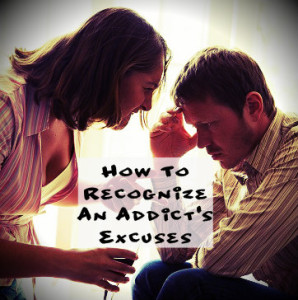 I need to use to be social – This is a common excuse used by introverts and the shy who have drug abuse problems. Drug or alcohol abuse should never be a crutch for socializing. In fact, it can make your friend look worse in social settings and can cause embarrassing situations.
I need to use to be social – This is a common excuse used by introverts and the shy who have drug abuse problems. Drug or alcohol abuse should never be a crutch for socializing. In fact, it can make your friend look worse in social settings and can cause embarrassing situations.
- I need to drink/use drugs to keep up at work – Using certain drugs can make a person feel high, powerful and energetic. Facing work and other responsibilities without the drug can seem daunting. Eventually, though, the drug abuse will catch up to him and make all responsibilities, at work and at home, more difficult.
- I only drink to relieve stress – And isn’t that how addiction begins? Drinking or using drugs is never a healthy way to cope with stress. The problems the habit causes will eventually create even more stress.
- I only use on the weekends/socially – There is no such thing as casual drug use. If your friend is getting high or drinking to pass out on Friday and Saturday nights, she still has a problem, and one that will only get worse.
- Everyone else does it – It may be true that you can look around a party and see people getting drunk, or even getting high, but you have no idea what their histories are. Comparing yourself to others is not a valid excuse to abuse drugs and alcohol.
- I can stop whenever I want to – As soon as someone utters this line, you can almost guarantee he has a problem. You should never have to convince others that you can quit whenever you want to. If you do, it means people are worried, and probably with good reason.
What You Can Do Once You Know The Addict’s Excuses
Being around someone who abuses drugs and alcohol or who is already a full-fledged addict means you are going to hear excuses. Learn to recognize them for what they are: pitiable reasons to continue using. When you know what to look and listen for, you can see addiction more clearly. Confront your friend or family member who is making these excuses and offer a solution: treatment.
Addiction is a disease, and like any physical disease, it requires treatment. Help your friend first recognize his problem by challenging his excuses. Then, be prepared to help him and to offer to get him into a treatment program. Doing it on his own will be a major challenge, but if you can be there to help him select a rehab program and to support him in his sobriety, he can succeed.
Read More On How Do I Know If I Am Enabling The Addict In My Life?
Inattention and impulsivity are two mental/behavioral patterns that can substantially lower a person’s ability to function well in a range of social and interpersonal situations. While these patterns are commonly linked to the presence of attention-deficit/hyperactivity disorder (ADHD), they also occur in people unaffected by ADHD. In a study published in November 2013 in the journal Drug and Alcohol Dependence, researchers from the University of Chicago looked at both inattention and impulsivity as potential risk factors for increasing individuals’ sensitivity to the effects of the stimulant amphetamine. Typically, such an increase in drug sensitivity significantly heightens the risks for subsequent stimulant abuse and stimulant addiction.
Inattention Characteristics
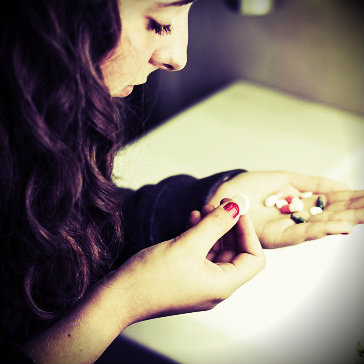 Inattention is the general term for an inability to stay focused on specific events taking place in your current surroundings, stay focused on specific details of your environment or stay focused during personal or group interactions with others. In the context of ADHD, these focusing problems contribute substantially to social and interpersonal dysfunction, characterized by such things as poor academic performance in school or college, difficulties making appropriate social adjustments to changing circumstances, underdevelopment of critical language and math skills, a reduced ability to get or keep a job, and difficulty maintaining personal or intimate relationships. Outside of the context of an ADHD diagnosis, inattention can increase a person’s risks for involvement in accidents or susceptibility to fraud or other deceitful behavior.
Inattention is the general term for an inability to stay focused on specific events taking place in your current surroundings, stay focused on specific details of your environment or stay focused during personal or group interactions with others. In the context of ADHD, these focusing problems contribute substantially to social and interpersonal dysfunction, characterized by such things as poor academic performance in school or college, difficulties making appropriate social adjustments to changing circumstances, underdevelopment of critical language and math skills, a reduced ability to get or keep a job, and difficulty maintaining personal or intimate relationships. Outside of the context of an ADHD diagnosis, inattention can increase a person’s risks for involvement in accidents or susceptibility to fraud or other deceitful behavior.
Impulsivity Characteristics
Impulsivity is a term used to describe a tendency to act without significant forethought, or to act while ignoring previously gained insights regarding the negative potential outcomes of one’s actions. In the context of ADHD, the tendency to act impulsively contributes to the same general forms of social and interpersonal dysfunction that appear in people affected by ADHD-related inattention. Outside of the context of ADHD, impulsivity is linked to increased risks for a group of mental health conditions called personality disorders, as well as increased risks for mania, a highly agitated or excitable state commonly associated with the presence of bipolar disorder.
Inattention, Impulsivity Problems And Susceptibility To Stimulants
In the study published in Drug and Alcohol Dependence, the University of Chicago researchers gave fairly low 20 mg, 10 mg and 5 mg doses of amphetamine to 165 adults with no history of substance abuse issues or other major health problems. After receiving each dose, each of these adults took part in tests designed to measure problems with inattention and problems with impulsivity. Each adult also filled out two questionnaires that helped the researchers gauge their sensitivity to the effects of amphetamine. For the sake of comparison, all 165 participants also went through the same testing procedures after taking a placebo drug dose that didn’t actually contain amphetamine or any other mind-altering substance.
The purpose of the project was to determine whether a high degree of impulsivity or inattention can increase a person’s susceptibility to the effects of amphetamine, and therefore make that person more susceptible to the eventual development of amphetamine abuse, amphetamine dependence or amphetamine addiction. The project’s designers undertook their efforts because, while previous studies had raised the possibility of a link between impulsivity, inattention and increased sensitivity to stimulant drugs, the authors of these studies had not examined this issue in detail.
At the end of the study, the researchers concluded that people affected by unusual degrees of inattention actually experience a decrease in their sensitivity to the mind-altering effects of amphetamine, not an increase. In addition, when amphetamine doses grow larger, people affected by inattention become less and less sensitive to the drug’s effects. The story is different for unusually impulsive people. When these individuals receive amphetamine, they exhibit a strong sensitivity to the drug’s effects. In addition, this sensitivity rises as the administered dose of amphetamine increases.
Results Of Strong Inattention, Impulsivity On Stimulant Abuse
The results of the study published in Drug and Alcohol Dependence indicate that the presence of unusually high levels of inattention may act as a hindrance to developing an abusive or addictive pattern of stimulant use. Conversely, the presence of unusually high levels of impulsivity may act as a factor in the development of these harmful patterns of stimulant intake. If this second point is true, then high impulsivity almost certainly adds to other known risks for developing stimulant abuse or addiction problems, rather than acting on its own as a primary factor.
Read More About Moms Abusing Stimulants
23 Dec 2013
Is Marijuana Really Addictive?
Many people take marijuana use with a grain of salt. It’s not a hard drug, right? It’s legal in two states now, so how bad could it be for you? If you have a loved one, maybe a teenager, who is smoking pot, you may wonder if he is at risk of becoming addicted. You should be worried, but not for the reasons you might think.
Marijuana Addiction
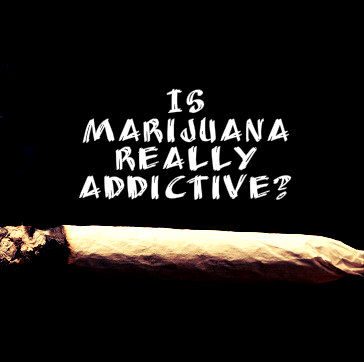 Most people who use marijuana do so recreationally and without developing an addiction. When compared to other drugs that are highly addictive, like heroin, meth or cocaine, marijuana seems very innocent. Those harder drugs can result in dependence in a user very quickly. What makes some drugs so addictive is that the body becomes physically dependent upon them. A heroin addict needs another hit just to feel normal again, to stop the pain, the anxiety, the irritability and the shaking that come with withdrawal.
Most people who use marijuana do so recreationally and without developing an addiction. When compared to other drugs that are highly addictive, like heroin, meth or cocaine, marijuana seems very innocent. Those harder drugs can result in dependence in a user very quickly. What makes some drugs so addictive is that the body becomes physically dependent upon them. A heroin addict needs another hit just to feel normal again, to stop the pain, the anxiety, the irritability and the shaking that come with withdrawal.
Marijuana does produce some light withdrawal symptoms. A regular user might start to feel a little irritable and experience an elevated heart rate when he has stopped using for a day or two. These symptoms are much milder than those seen with harder drugs, though. So is marijuana addictive? The answer is yes. Addiction is more complicated than physical dependence.
It is possible that your teen will become addicted to marijuana if he uses it regularly and frequently. If he begins to smoke pot in a way that is compulsive, if he can’t seem to stop, he needs it to relax, or he needs it to get going in the morning and to sleep at night, these are all signs of an addiction, whether he is physically dependent on the drug or not.
Marijuana Risks
Even if your teen does not become addicted and sticks to casual, recreational use of marijuana, there are still risks. When he smokes pot, it makes his heart rate go up, it makes him disoriented, it makes him uncoordinated and it may make him anxious or paranoid. Marijuana is a mind-altering substance. If he tries to do anything while high, such as drive a car, or even just cross a street, he could cause an accident.
Smoking pot also carries many of the same risks as smoking cigarettes. Substances in the smoke can cause cancer and lung disease, especially with regular use. Long-term marijuana use has been shown to cause abnormalities in the brain and the development of psychiatric problems. Another problem with smoking pot is that it tends to make people lazy and apathetic. This is not true for everyone, but someone who is high all of the time is not likely to get much done.
Parents Talking With Their Teens About Marijuana Use And Its Risks
So although marijuana can in fact be addictive, it is important to remember that it is not in the same class as harder drugs. There are different ways to become addicted to a substance or a behavior. Addiction to marijuana is often more of a behavioral habit than a physical dependence.
Aside from addiction, there are many other reasons to be concerned if your teen is smoking pot. Sit your teen down for a talk about the dangers and risks associated with using this drug. Explain the possibility of addiction and the physical damage it can do to his body. With information, you empower your teen to make the best choices.
Read More About How Marijuana Use Is Linked To Mental Disorders
Everyone has heard of the functional alcoholic. This is the person who drinks excessively, who needs to drink every day to quell withdrawal symptoms, but who can also go to work, maintain relationships, and keep a home life that is fairly steady and balanced. Is it also possible to be a functional drug user? Is there a difference between a functional drug user and a drug addict? And how can you tell what is going on with your spouse?
The Functional Drug User
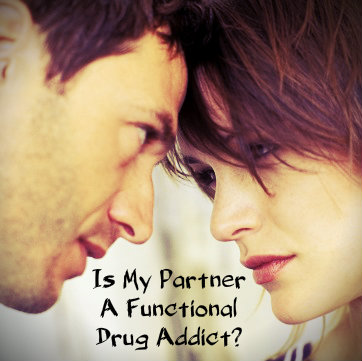 It is possible, at least for a time, for a drug user to be high functioning. If your spouse or partner uses drugs but still has a job, still meets your needs at home, still keeps up with responsibilities, and rarely experiences negative consequences related to drug use, your partner is functioning. Some of the most addictive drugs are difficult to use in such a way that functioning is still possible. For instance, heroin users are rarely functioning on any level other than a desire to get the next fix.
It is possible, at least for a time, for a drug user to be high functioning. If your spouse or partner uses drugs but still has a job, still meets your needs at home, still keeps up with responsibilities, and rarely experiences negative consequences related to drug use, your partner is functioning. Some of the most addictive drugs are difficult to use in such a way that functioning is still possible. For instance, heroin users are rarely functioning on any level other than a desire to get the next fix.
High-functioning drug users are more likely to be those that use marijuana, cocaine, prescription painkillers or amphetamines, or methamphetamine. If your partner uses drugs to get going in the morning, to relax after work, to cope with her emotions, particularly negative ones, or to get a boost of energy, she has a problem whether she is functioning or not.
Functioning And Addicted?
A functional drug user may not be an addict right away. If the drug use has not yet become compulsive or if your partner has not yet started to experience withdrawal symptoms, she may not yet be addicted. It is important to understand, however, that she is headed down a dangerous path.
If she continues to use drugs motivated by emotional reasons or the need to function during the day, she is headed down the path to addiction. Addicts can be high-functioning, and you may be watching your loved one gradually slide from casual drug use into addiction without noticing. The fact that she can function normally makes this transition difficult to catch.
Getting Help For Your High-Functioning Addict
It is very important for you and your partner to discuss her drug use. Whether you think she has become addicted or is still a casual user, she needs to stop using. Abusing drugs always carries the risk of addiction, no matter what her intentions are or how well she is functioning. No matter how strong-willed she claims to be about her drug use, it is possible that she will become dependent on her drug of choice.
Getting a functioning user to admit to having a problem is difficult. Denial runs deep in high-functioning addicts because they can always point to their lack of negative consequences to prove they don’t have a problem. If she lost her job, got in trouble with the law or was going broke feeding her habit, it would be easier to admit to having a problem.
Your job is to convince her that she is headed down a dangerous road, and that she may end up facing serious consequences if she keeps going; point to her motivations for using. Does she use drugs to cope with emotions she doesn’t want to recognize? Does she use because facing the day without drugs seems impossible? Does she need drugs to relax or to cope with stress? These are all the motivations of drug abusers and addicts. Help your partner to understand what she is doing and the possible harm it could cause in the long run.
Read About Functioning Addicts In The Media


